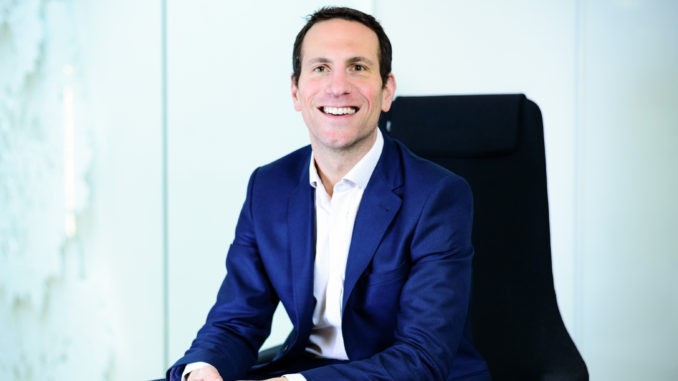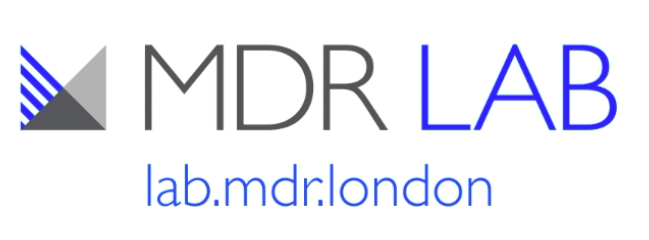
MDR LAB, the tech incubator of London-based firm, Mishcon de Reya, is now welcoming its second cohort of startups (see story here.) Artificial Lawyer caught up with Nick West, CTO of the firm and the driving force behind the initiative, to chat through some of the key ideas around the project.
First off, West says that although he is very excited about the new class of startups (five in total – see list below), he’s just as excited about the first group still, which the firm has in some cases invested in, is implementing their tech already, or is still co-ordinating feedback and ideas with.
You could say that the first cohort never really ended, they just left the building, or at least their founders did. MDR LAB, and the firm as a whole, is keeping close to companies ranging from Ping, which does time-keeping, to India-based legal AI company Surukam, regardless of whether it’s invested in them or not.
And this is because taking financial stakes in the startups was never the main goal.
West notes that a couple of years ago the firm did a major strategy review project that looked 10 years ahead. It was clear that tech’s impact would be a key part of this strategy. MDR LAB grew out of this and as West says, it’s a very real expression of the overall goal.
‘Tech is a component of the firm’s strategy, it’s not a question of just saying we need to have more tech, it’s about getting involved in legal technology,’ he explains.
And it is very much about the lawyers of the firm getting involved. The LAB has seen lawyers take part as mentors, or just as users of the new tech, perhaps feeding back useful information to the companies on what they really want and how they want it to work.

Who would have thought you could get lawyers so excited about hands-on experience of new – often still early stage – legal and prop tech? But, MDR has done it, and it’s done it by putting the tech right in front of the lawyers and saying: there it is, go for it!
The experience has also helped inform West’s view on how best to pick companies for an incubator. He notes that if the aim is to get lawyers at the firm excited then it has to be relevant to them. It’s nice if it’s also useful for the clients too, but the idea of MDR testing out tech that will not be used by the firm, and likely only by the end client, isn’t going to work. There has to be a practical pay-off.
He also notes that when it comes to ROI this is tricky.
‘It can be intangible, it’s hard to point to something and say this is proof it’s all working,’ he says, but adds that if engagement and interest in legal tech is the measure – which then results in the firm making use of said new legal tech to their advantage – then surely this is a good sign.
West also says that the incubator has been a great way to engage with innovative tech companies that don’t always have a totally finished product, and which in the past they may not have been able to make use of.
If an early stage company makes a 20 minute pitch to a team of highly-caffeinated partners at 9AM one morning, and it doesn’t look totally brilliant, then it likely isn’t going to fly.

But, give key partners a period of 10 to 12 weeks to get to grips with a new type of technology, to meet with the founders on a more human level, to give feedback and see that feedback actually go into making the product better….well, then you have a very different process. And arguably one that is a lot more successful than random pilots, or comparing new tech with old tech and concluding that the new tech is bad because it’s ‘not ready’.
‘Now, [with the LAB] we don’t expect it to be finished, but rather that the [product] could work for us,’ West explains.
And now, as MDR and West move into the second cohort, what has he learnt about what makes a good candidate for an incubator?
First, he comes back to the key point.
‘Is this solving a real problem that the lawyers of this firm are facing?’ he states clearly.
‘Next, do we like the product that seeks to address this problem, and third,‘ he adds, ‘is simply: do we like the team?’
So, there you have it. And one would guess that when those three things are aligned, then the lawyers at the firm feel a lot happier too, which leads to their engagement, which makes the experience of the tech company better as well.
All in all it’s a virtuous circle, but, as West says, it starts with a clearly defined problem that the firm’s lawyers face.
Artificial Lawyer will be eagerly watching to see how the current cohort does. But, one could say they’ve already passed the hardest test, which was meeting the three criteria above.
This year’s cohort are:
Founded in September 2017 and based in London, ThirdFort is at product development stage with its product: a web-hosted software platform facilitating exchange of money in property transactions.
– dealWIP
Based in Brooklyn, NY, dealWIP was founded in June 2017. It has a user-stage product: an integrated legal workspace platform for transactional lawyers.( See a profile of dealWIP in Artificial Lawyer here.)
– LitiGate
LitiGate was founded by experienced litigator Nimrod Aharon and AI expert Guy Uziel and is based in Tel Aviv. LitiGate offers an arguments analysis solution for dispute resolution using advanced AI algorithms. The company aims to revolutionise the conduct of litigation by delivering contentious legal services faster, at less cost and with improved accuracy.
Founded in 2016 and based in San Francisco, US, Digitory Legal has a user-stage product: a pricing prediction and management tool for litigators. Using historical data and industry trends, it helps customers understand what legal matters cost and why.
London-based LawPanel was founded in January 2016. It is at user-stage with its online trademark management platform, designed to allow firms to deliver more of their services online.